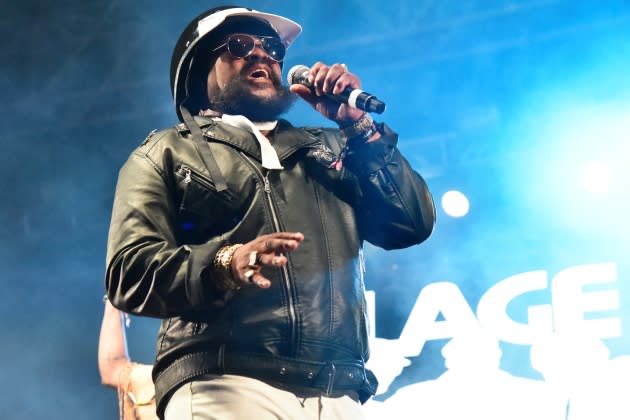The Village People Are Once Again Asking Donald Trump to Stop Using Their Music

Victor Wills, the lead singer of ostensibly one of Donald Trump’s favorite bands, the Village People, is once again asking Trump to stop using his music.
A letter from Village People manager (and Willis’ wife), Karen Willis, specifically calls out a recent video from Mar-a-Lago showing Trump dancing along to the Village People’s “Macho Man” while a group of people — dressed up just like the Village People — dance behind him.
More from Rolling Stone
Evil Mermaids, Demons, and Donald: This Pro-Trump Conference Got Real Weird
Ron DeSantis Still Can't Bring Himself to Admit Trump Lost in 2020
The Village People lead singer sent Trump a cease and desist over a performance of "Macho Man" at Mar-a-Lago: pic.twitter.com/meHYWMOjgf
— Aidan McLaughlin (@aidnmclaughlin) May 15, 2023
In her letter (addressed to Trump lawyer, Joe Tacopina), Willis called the performance “unauthorized” and said, in the wake of the video, “many fans, and the general public as well, mistakenly believe” the actual Village People delivered the performance. As such, Willis claimed the performance constituted a violation of the Lanham Act, a piece of copyright law that protects trademark owners “against the use of similar marks if such use is likely to result in consumer confusion.”
Willis asserted that U.S. trademark law “protects against the unauthorized use of the Village People image and trade dress. To be certain, the use of the group’s image and likeness at Mar-a-Lago was unauthorized. Though my husband has tolerated your client’s use of his Village People music, we cannot allow such use by him to cause public confusion as to endorsement.”
Trump’s use of Village People hits like “Y.M.C.A.” and “Macho Man” has been a frequent (and surreal) part of the soundtrack for his campaign rallies and events over the years. Victor Willis did, indeed, tolerate it for a while, writing on Facebook in Feb. 2020, that he had not asked Trump to stop because “our music is not being used for a specific endorsement.”
But Willis’ tune changed in June 2020 amidst the uprising against racial injustice and Trump’s demand that law enforcement officers clear peaceful protesters from Lafayette Square in Washington D.C. with tear gas, batons, and explosive devices so he could stage a photo op in front of St. John’s Episcopal Church.
“If Trump orders the U.S. military to fire on his own citizens (on U.S. soil), Americans will rise up in such numbers outside of the White House that he might be forced out of office prior to the election,” Willis wrote at the time, adding: “And I ask that you no longer use any of my music at your rallies especially ‘Y.M.C.A.’ and ‘Macho Man.’ Sorry, but I can no longer look the other way.”
In her letter to Tacopina, Karen Willis “requested” that Trump “cease and desist any such further unauthorized use of the Village People image in association with the songs and his campaign (or in his personal capacity).” She continued: “Otherwise, we shall be forced to bring suit preventing further use, not only of the Village People trademarked images and trade dress, but of the music as well (and we’d hate to have to do that) but such combined use causes public confusion and is suggestive of endorsement.”
Willis demanded Trump and his lawyers respond to their cease and desist within 10 days. Tacopina’s office did not immediately return a request for comment.
Many artists have been frustrated by Trump’s use of their music over the years, though there’s little they can legally do about it. Campaigns can procure special licenses with publishing giants BMI and ASCAP, which authorizes the public performance of millions of songs at campaign events. Artists, however, can work with BMI and ASCAP to remove their songs from beneath this umbrella, as the Rolling Stones did after Trump played some of their music at a rally in 2020.
Best of Rolling Stone